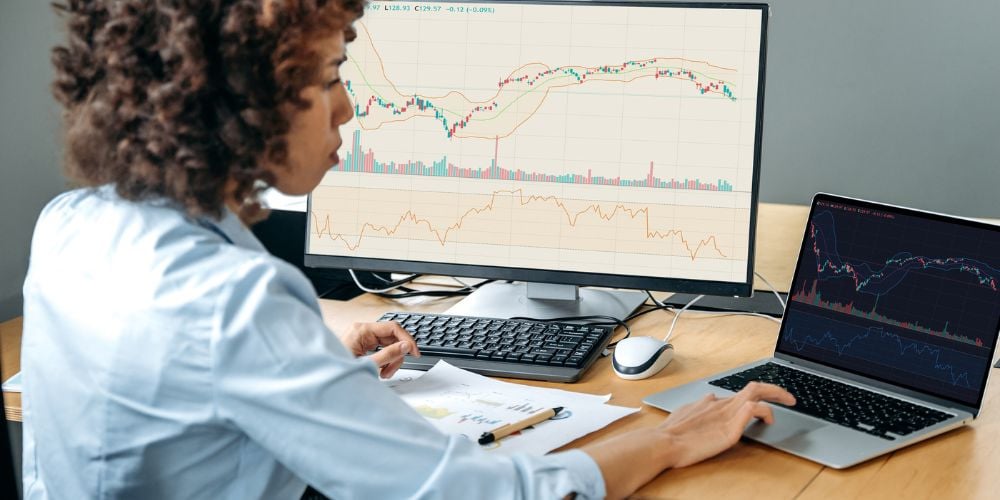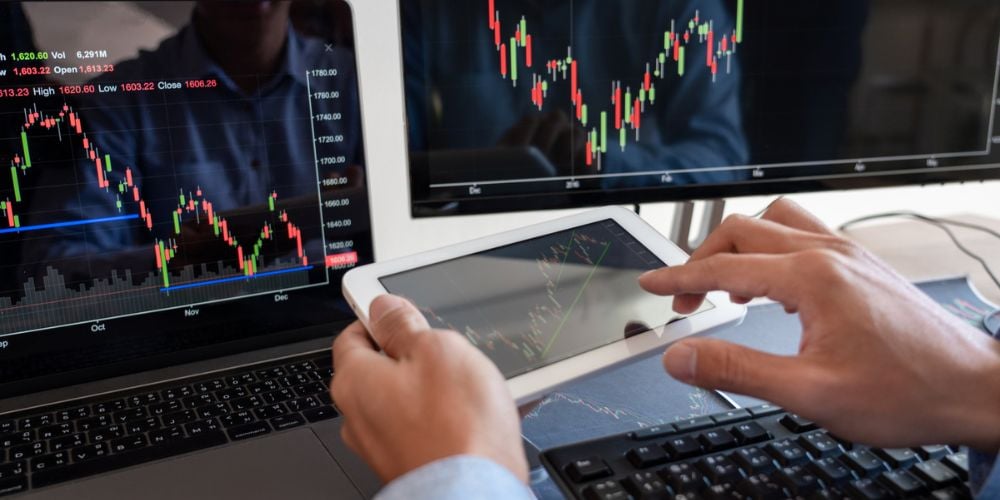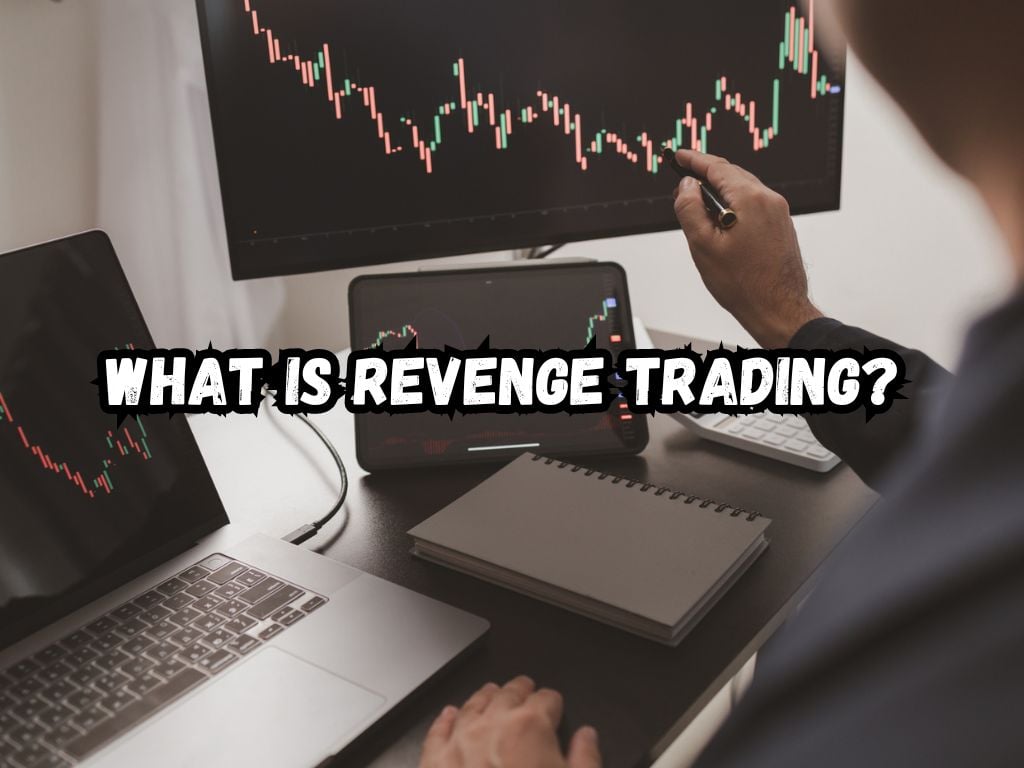The world of trading can be thrilling and rewarding. But it’s also filled with pitfalls and challenges. One such danger is revenge trading.
It’s a term that might sound dramatic but is a crucial concept in the psychology of trading. This article will dive into what revenge trading is, why it happens, and how to prevent it.
What Is Revenge Trading?
Description
Revenge trading occurs when a trader tries to recover losses by making hasty, often irrational decisions. It’s the act of trading with a mindset of getting back at the market for a previous loss.
This behavior is marked by increased volume or size in trades, without due consideration to one’s trade strategy or risk management.
Impact
When traders engage in revenge trading, they often experience even greater losses. This can lead not only to a depleted portfolio but also to severe emotional stress.
The decisions made during revenge trading, driven by an impaired state of judgment, can undermine months or even years of disciplined investing.

Causes of Revenge: Trading Psychology Deep Dive
Emotional Response
Losses in trading often provoke a strong emotional response. Emotions like anger or frustration push the desire to immediately rectify the setback.
This is a reaction we must look out for. Traders must realize that the market is not an adversary one can ‘beat’ but a force one must coexist with.
External Pressures
Traders may also face pressure from others or their own financial goals. These pressures can make the loss seem intolerable, pushing them towards irrational decision-making. They need balance to navigate these pressures successfully.
Lack of Strategy
A lack of a well-defined trading plan can leave traders vulnerable to revenge trading. When losses occur, without a strategy, they may be unsure of the next step and act on impulse. A solid plan can act as a guide during turbulent times.
Case Studies
Consider the trader who, after a loss, jumps straight into another trade without analysis, only to lose more.
Then there is another trader who takes a moment to understand what went wrong, adjusts the plan, and waits for the right opportunity. This response makes all the difference. Studying both outcomes can be enlightening.
Strategies to Prevent Revenge Trading
Preparation and Planning
A key to successful trading is preparation. Traders must develop a strategy that includes defined entry and exit points, investment sizes, and an understanding of acceptable risks.
Emotional Discipline
Emotional discipline is vital. Traders should learn to accept losses as part of the process and resist the urge to enter hasty trades.
Techniques like mindfulness can be extremely helpful. Understanding one’s emotional triggers can also aid in maintaining control.
Risk Management
Implementing risk management techniques, such as stop-loss orders, can help limit the impact of losses. By not over-leveraging their positions, traders can ensure that no single loss is devastating. It’s a protective barrier against the temptations of revenge trading.

Tools and Resources to Help
Educational Resources
Traders should always be learning. Books, courses, and seminars focused on trading psychology can provide insights and strategies. This is an investment in their trading future.
Professional Help
If a trader finds themselves consistently struggling with emotional discipline, it might be time to seek a coach or psychologist. This is a sign of strength, not weakness. Professional guidance can make a big difference.
Community and Support
No trader is an island. Online forums and communities can offer advice and support. Speaking with peers who understand the pressures of trading can be comforting and informative.
Recovery from Revenge Trading
Overcoming the effects of revenge trading involves reflection and rebuilding.
Analyzing what led to the situation, reestablishing a trading plan, and a dedication to continuous learning are all part of the recovery process. It’s about building a better, stronger approach to trading.
Frequently Asked Questions
What makes revenge trading different from aggressive trading?
While all traders need an edge, revenge trading is not strategy-driven—it’s emotion-driven. Aggressive trading can be part of a deliberate strategy; revenge trading is reactive and unplanned.
How can one differentiate between a bad trading day and beginning patterns of revenge to trade?
A bad day doesn’t lead to a change in trading behavior. Revenge trading patterns disrupt normal strategies and risk management practices. It’s more about the trader’s response to losses than the losses themselves.
Are experienced traders also prone to revenge trading, or is it more common among beginners?
Revenge trading can affect anyone. Even experienced traders can fall prey if they let their guard down. It’s about discipline and control, not solely about experience.
What are some common signs that indicate someone might be revenge trading?
Some signs include entering trades impulsively, increasing trade sizes significantly to recover losses quickly, and deviating from the trading plan.
Can the implementation of technology and algorithmic trading systems help in avoiding revenge trading?
Yes, automated systems remove emotion from the equation. They can execute trades based on predefined criteria, reducing the risk of revenge trading.
In trading, discipline is a form of wisdom. By understanding and guarding against revenge trading, traders can focus on making wise decisions and nurturing sustainable success.
Conclusion
Revenge trading is driven by emotion and can be highly damaging. Recognizing and understanding this behavior is the first step toward prevention.
By learning to manage emotions, sticking to a solid trading strategy, and using risk management tools, traders can protect themselves from the risks of revenge trading.


 Tags:
Tags:










